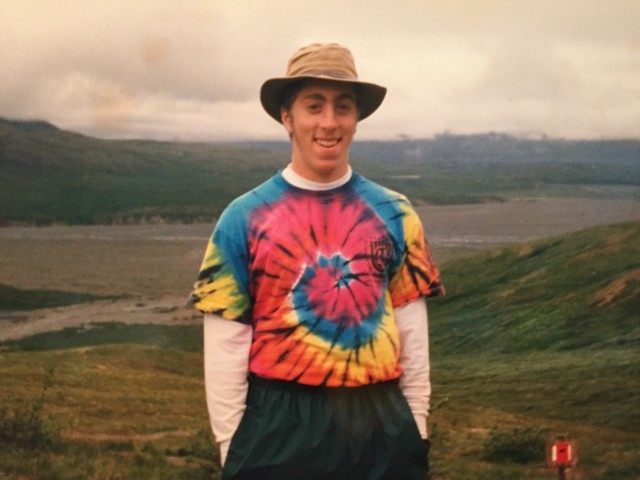Alaskans, and millions who love Alaska, support changing the name of Mt. McKinley to Denali. And that is exactly why President Barack Obama’s unilateral decision to change the name is so wrong.
When we allow leaders to bend the rules for popular policies, we create bad precedents for them to bend the rules for unpopular ones. The name ought to have been changed through a legislative compromise, or a consultative administrative process–not by fiat.
I have personally spent a good deal of time in Alaska, including a journalism internship in Anchorage and thesis research on the North Slope. I have hiked solo in the Denali National Park (in 1996, above), and had the luck to witness wolves hunting caribou by the Toklat River. Never once in my time there did I call the mountain anything other than “Denali.” Nor did I ever meet an Alaskan, Native or otherwise, who referred to the peak as “Mt. McKinley.”
Still, few regarded the name of the mountain as an urgent problem. It was just another one of the ways in which the federal government, with which the state has a love-hate relationship, had interfered in what locals consider their own affairs. (Another, far more significant intervention is the federal government’s habit of locking away large parcels of land from oil and gas development–a trend that Obama has continued during his administration.)
The name “Mt. McKinley” was enshrined in a law passed by Congress in 1917. The Obama administration argues that a clause in the 1947 law creating the U.S. Board of Geographic Names allows it to act on its own if the Board “does not act within a reasonable time,” and that U.S. Representatives from Ohio have tied up the name change for decades after Alaskan political leaders voted to recommend restoring the original Athabascan title (“the high one”).
But it is not clear that the 1947 law trumps the 1917 law, and Obama cannot issue executive orders, or executive memoranda, contrary to an existing statute.
Due deference to Congress–as well as to William McKinley’s home state of Ohio, which has long resisted changes to the name–would suggest that Obama should have urged Congress to resolve the dispute, or at least allowed public comment on the name change, while searching for other ways to honor our 25th president.
Instead, Obama acted out of sheer vanity, timing the name change with his Alaskan visit.
Except for the most offensive names–and there are a few–changing place names and tearing down monuments often does little except offend people for whom those symbols are a valued heritage. Typically, name changes are the unique obsession of failing post-colonial regimes that have run out of ideas to improve the lives of their citizens.
In my native South Africa, where I lived and worked after writing my college thesis on Alaska, the post-apartheid government remains fixated on name changes, even as the country’s economy struggles and crime ravages the population.
Over time, some parts of South Africa–notably the City of Cape Town, which is governed by the opposition–developed a process of consultation that, at least in theory, balances historical values against the country’s new aspirations, and mediates between the competing desires of different constituencies.
We in the U.S. could learn from that. There are “teachable moments” that we are missing–even in dropping symbols like the Confederate flag.
The Denali debacle is a “teachable moment” about tyranny. Two wrongs do not make a right, and the switch from Mt. McKinley to Denali, whatever its substantive merits, is an affront to the Constitution, and an abuse of power.
Update: A follower on Twitter speculates that Obama may have been motivated to dump McKinley as part of his radical Cuba policy. McKinley was the president who helped liberate the island from Spanish rule–a fact that Obama has ignored in his rush to parrot the Castros’ anti-colonial narrative. I doubt Obama had that in mind, any more than he wanted to degrade McKinley for being a Republican, or celebrate the anarchist who assassinated him, or revive the antisemitic populism of Democrat William Jennings Bryan, whom McKinley defeated twice.
But Obama’s Cuba shift is relevant, because it is another case of a popular policy that Obama is enacting outside of his executive authority. By letting Obama cut constitutional corners for policies the public favors, we create a faulty foundation for the sake of those the public rejects (like the Iran deal, which remains overwhelmingly unpopular).

COMMENTS
Please let us know if you're having issues with commenting.